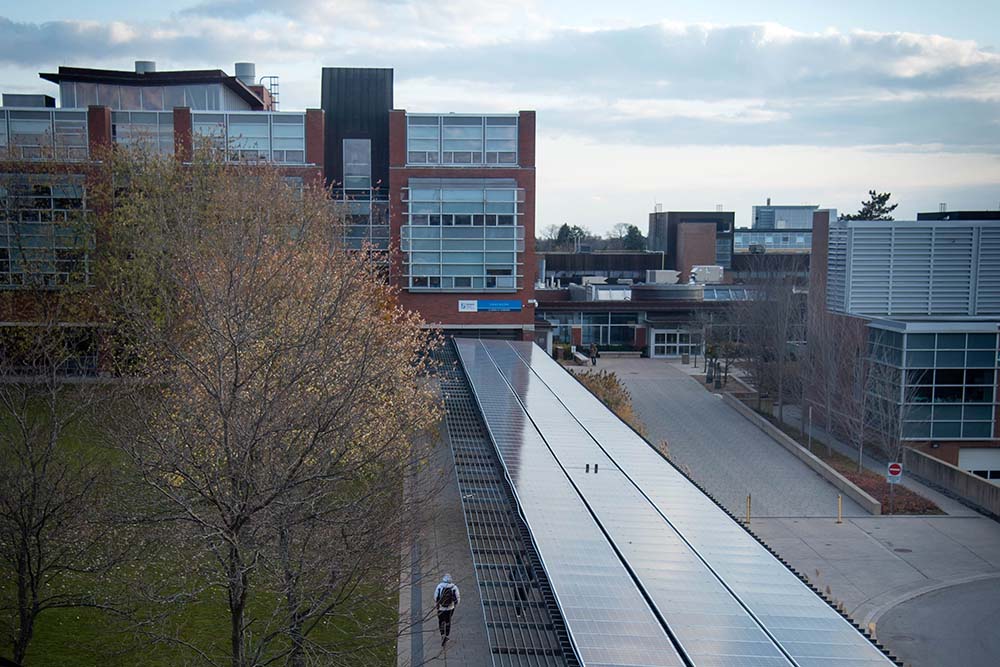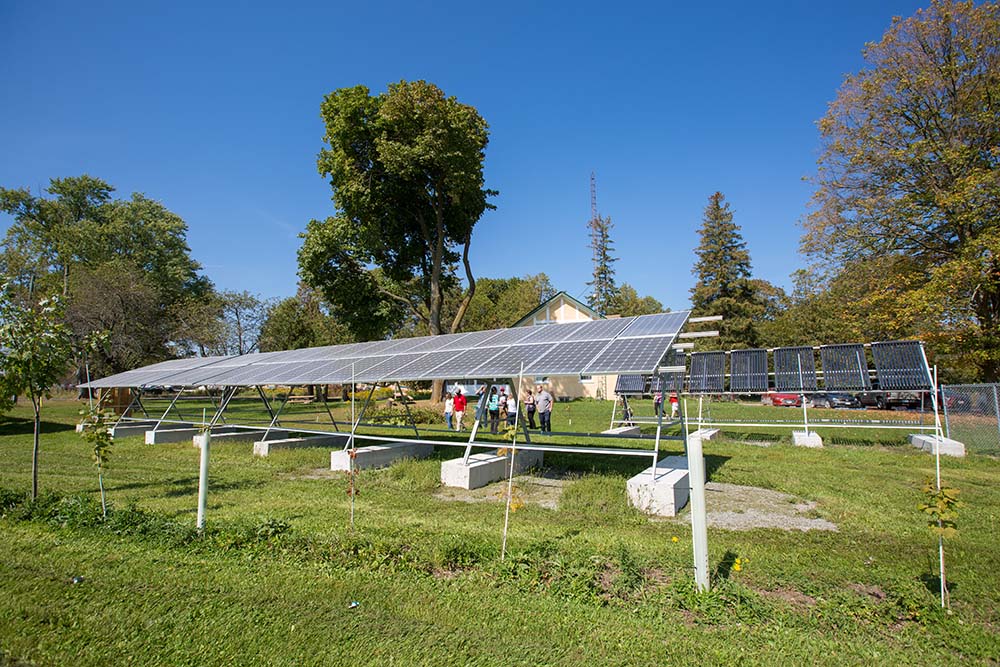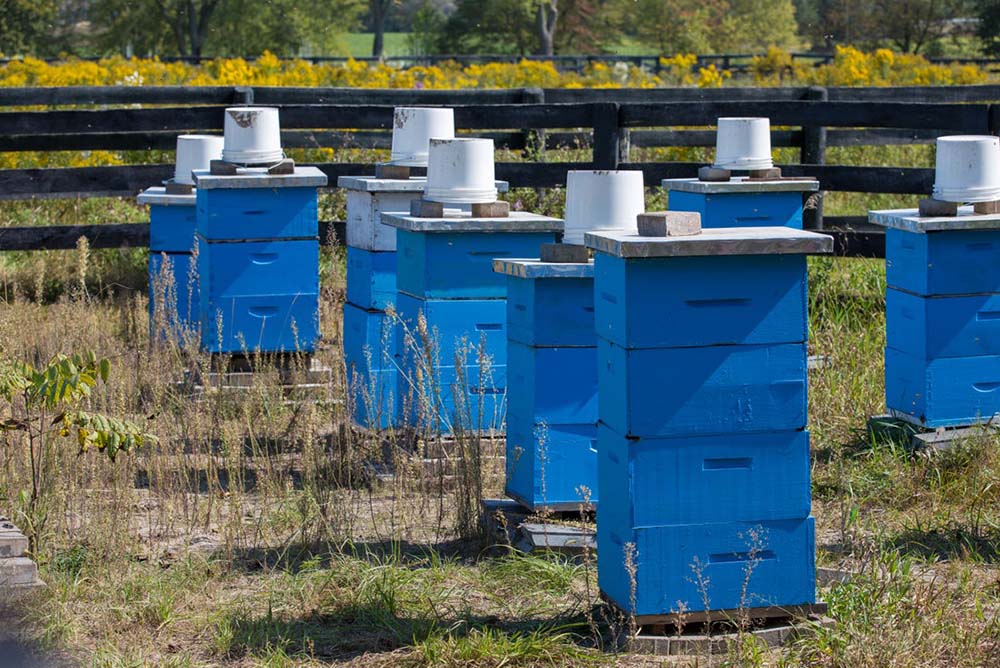Ontario Tech University part of global effort to take climate action connected with COP26
November 2, 2021

Ontario Tech University is one of more than a thousand universities and colleges from 68 countries that have pledged to half their emissions by 2030 and reach net-zero by 2050 at the latest. This global effort impacting more than 10 million students worldwide was announced October 28 at the Times Higher Education Climate Impact Forum*, showing the education sector’s leadership ahead of the United Nations (UN) Climate Change Conference (COP26) in Glasgow, UK.
Universities and colleges from across the globe have signed up to the Race to Zero for Universities and Colleges, an initiative led by the Alliance for Sustainability Leadership in Education (EUAC) and Second Nature with support from the UN Environment Program (UNEP).
The role of the education sector in the global Race to Zero is substantial. Universities and colleges are setting a good example for their students and have the power to shift mindsets, influence lifestyle choices and instil sustainability values and green skills into the leaders of tomorrow.
Universities and colleges can influence staff, faculty, students and the surrounding campus community. Setting progressive sustainability targets can have far-reaching impacts well beyond the walls of the institution. Universities are hubs for research and innovation, which could scale up the role of higher education in the green transition.
For many years, Ontario Tech University has been recognized with international awards for its many efforts to build and promote a sustainable campus, powered partially by one of Canada’s largest geothermal energy systems. Ontario Tech's dedicated Office of Campus Infrastructure and Sustainability also operates the beautiful Pollinator Project and community gardens at Windfields Farm that help supply local food banks.
- Learn more about sustainability-related stories at Ontario Tech
The university is also heavily engaged in new program development on climate-change mitigation and adaptation. Ontario Tech University’s recently created Brilliant Energy Institute is an umbrella grouping of high-level expertise devoted to the great energy transition of our time toward a non-carbon-based economy.
*T he Times Higher Education report (The Race to Net Zero – How Global Universities are Peforming) highlights while there is a growing concern for sustainability amongst institutional leaders, climate action is still limited with the world’s top research universities not having the most ambitious plans to reach net-zero.
Quotes
“As a future-driven university, Ontario Tech has always championed an unfailing commitment to sustainability initiatives, conservation and green community-building. Sustainable practices in our programming and day-to-day operations continue to be a foundational value at our university. We are proud to reaffirm our leadership in sustainability as we join the international post-secondary community in this vital commitment to addressing the impact of climate change.”
-Dr. Steven Murphy, President and Vice-Chancellor, Ontario Tech University
“Higher education institutions have the power to redesign the future. Not only are universities, colleges and schools committing to ambitious decarbonization plans; these institutions also have the capacity - and indeed the responsibility - to support and educate our leaders of tomorrow. It's fantastic to see so many higher education institutions joining Race to Zero and I urge those who are not yet in to commit and take action now."
-Nigel Topping, UK high-level climate champion
“The higher education system oversees significant resources in human and financial capital, and how they deploy it can have a real impact on the planet. It is inspiring to see universities and colleges play a positive role in transitioning their institutions to being net zero and nature-positive. Young people want to attend universities and colleges that are driving the environmental agenda forward. Now the challenge is to scale this great work up from the progressive few to a standard procedure for all.”
-Susan Gardner , Director, Ecosystems Division, United Nations Environment Program
“ As anchor, catalytic and cross-sector collaboration builders in our communities, institutions must take on a societal climate leadership role. It is our universities and colleges which have to be at the forefront of zero-carbon innovation, researching circular and clean production, teaching green skills and demonstrating innovative fossil-free campuses. The profile of universities and colleges committing to emissions reduction and net zero has never been higher. But with commitment comes accountability and the Race to Zero brings this - allowing students to hold their institutions to account.”
- Iain Patton, CEO, Alliance for Sustainability Leadership in Education
2 > 1
Gallery
Media contact
Bryan Oliver
Communications and Marketing
Ontario Tech University
289.928.3653
bryan.oliver@ontariotechu.ca





